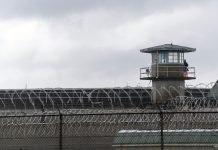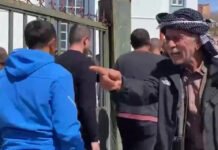A speculated “dirty deal” between the Turkish government and the German administration over the surprise release of Turkish-German journalist Deniz Yücel has given its first fruit in ties between two countries. Turkey’s autocratic President Recep Tayyip Erdoğan is reportedly to visit Germany once a new German government is in place, Turkish Prime Minister Binali Yıldırım announced in an interview published on Sunday.
“Once the new German government has been formed, there will of course be a visit at the highest level,” Yıldırım told German Press Agency (DPA) on the sidelines of the Munich Security Conference.
“President Erdoğan will come to Germany and Mrs Merkel, the German chancellor, will come to Turkey.” He added that there would be more frequent meetings in future at foreign minister level.
On Friday, the Turkish authorities released German-Turkish journalist Deniz Yücel after a year in detention for investigation. He was allowed to leave the country, even though he faces charges of “supporting terrorism.” The release removed a major point of conflict between the two countries.
In the interview, conducted on Saturday, Yıldırım made clear that he believed Erdoğan and other Turkish politicians would hold rallies in Germany aimed at the large Turkish diaspora there. “We would always want that. These meetings with people from Turkey are events that should not trouble Germany,” he said.
A German newspaper reported that it was President Erdoğan himself who gave the order for journalist Deniz Yücel’s release after lengthy, secret talks with German Foreign Minister Sigmar Gabriel. Gabriel had secretly met with Erdoğan at his hotel in Rome during his visit to the Vatican and promised a normalisation between Germany and Turkey in exchange for Yücel’s release, said an article by the Süddeutsche Zeitung.
Last week, Gabriel came to İstanbul to meet Erdoğan and discuss the offer in more detail, the German newspaper said.
This was not the first time this type of negotiation had happened, reported Turkish left-leaning Evrensel daily. Former German Prime Minister Gerhard Schröder had also acted as an intermediary in secret talks to free German rights activist Peter Streudtner last year. “In the end, the secret talks carried out to rescue Deniz Yücel resembled a real hostage rescue operation,” the Turkish newspaper said.
Meanwhile, German Interior Minister Thomas de Maiziere said on Saturday that Turkey is a key partner in the fight against terrorism. During his address at the Munich Security Conference, the conservative politician turned down opposition calls to restrict security cooperation with Turkey. “Turkey remains an important NATO partner,” de Maiziere said, defending the government’s policy of close cooperation between Berlin and Ankara.
“We must also understand that Turkey has suffered from terrorism much more than Germany, and they have much more victims. Of course, Turkey is a key partner for us in the fight against terrorism,” he stressed.
Germany’s far-left opposition party Die Linke has criticized Turkey’s counter-terrorism operation in northwestern Syria, Operation Olive Branch, and called for restricting security cooperation with Ankara and suspending arms sales to Turkey.
Earlier on Saturday, Turkish PM Yıldırım told conference participants that Turkey’s measures against foreign fighters and its fight against the terrorist group PKK and its extensions PYD and YPG and ISIL in northern Syria carry significant importance for Europe’s security.
Last year there was controversy over political rallies in Germany ahead of a Turkish referendum on a change to the constitution granting greater powers to the president. The German authorities banned some events on security grounds. The Turkish government responded by accusing Germany of using “Nazi methods.”
Turkey is the biggest jailer of journalists in the world. The most recent figures documented by the SCF has showed that 241 journalists and media workers are in jails as of February 16, 2018, most in pre-trial detention languishing in notorious Turkish prisons without even a conviction. Of those in Turkish prisons, 208 are arrested pending trial, only 33 journalists remain convicted and serving time in Turkish prisons. An outstanding detention warrants remain for 140 journalists who live in exile or remain at large in Turkey.
Detaining tens of thousands of people over alleged links to the Gülen movement, the government also closed down more than 180 media outlets after the controversial coup attempt.
















